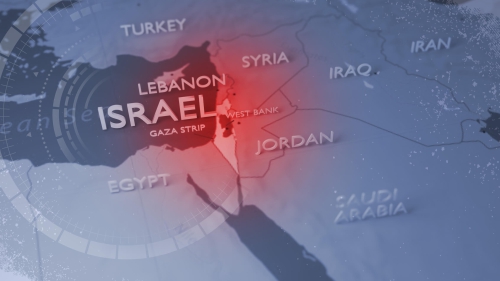Khatami Mending Fences
As Iranian President Muhammad Khatami wraps up a weeklong tour of Arab countries, a new image of unprecedented Arab and Muslim unity has begun to emerge in the Middle East. Khatami's visit to Syria, Saudi Arabia and Qatar, which ended Thursday in Doha, was described to Iran's official IRNA news agency by an analyst of the Delhi-based Institute for Defense Studies and Analysis, as a "new diplomatic offensive by Iran in the Islamic world." Although the meetings between Khatami and Arab leaders often turned to economic issues, they represent the first tangible efforts since the 1979 Iranian revolution among regional leaders to bring unity to the Middle East.
Khatami cemented a variety of business and trade deals with his host countries, which will no doubt prove valuable for Iran, a country still beleaguered by strict U.S. sanctions.
The domestic standing of Iran's reform president can only be reinforced by the bettering of ties with Iran's Arab neighbors, as Khatami's liberal politics have opened the door to talks with countries that previously contributed to Iran's isolation. According to the Iran Press Service, the United States, aware of Khatami's need to justify his reform policies to Iranian Shi'ite conservatives by strengthening ties with the Arab countries, has supported Khatami's tour.
Although he spent much time discussing oil prices, manufacturing, stemming drug traffic, education and water issues, Khatami revealed a more important aspect of his visits. In a move that flew in the face of U.S. interests in the Gulf region, Khatami used the trips to make a broad call for unity among Arab and Muslim countries and for an end to foreign security forces in the region. In Syria, Khatami reaffirmed Iranian-Syrian ties and supported Syria's anti-Zionist stance, saying that the Palestinian issue and the Israeli occupation of South Lebanon were problems that concerned Muslims everywhere.
Khatami's calls for unity with Saudi Arabia and Qatar were, unlike those with Syria, unprecedented. During the Iran-Iraq war, Gulf countries provided much financial assistance to Iraq in the hope that Iran's Islamic government would be overthrown. Iran formally broke ties with Saudi Arabia in 1988, a year after Saudi security forces killed 400 Iranian pilgrims who were staging anti-American and anti-Israeli protests during the annual Muslim pilgrimage to Mecca.
Iran's ties with Saudi Arabia have improved considerably in the past months. In March, the two countries were able to cooperate in combating falling oil prices and Saudi Arabia has expressed approval over Iran's new moderate government, elected in 1997. In addition, the recent death of Saudi Arabia's chief Islamic scholar, Bin Baz, who was staunchly against improving relations with Iran, is seen by many analysts as an opening for a warming of ties between the two nations.
But with reference to the United States and its policy in the Middle East, Khatami remains dissatisfied and, on a four-day visit to Saudi Arabia, which ended May 19, called for an end to the stationing of foreign troops in the Gulf. Khatami, who is the Organization of Islamic Conference (OIC) chairman, has been commended by Saudi Arabia for his efforts to bring unity to Muslims and Arabs, but Saudi Arabia was not prepared for Khatami's latest suggestion concerning the Western military presence in the Gulf.
Khatami echoed a similar sentiment Wednesday night in Doha when, as reported by Arabia Online, he said, "We want countries to be strong by relying on their own capacity." The statement was no doubt a veiled criticism of Saudi Arabia's continued hosting of American armed forces in the region. Although Saudi Crown Prince Abdullah concurred with Iranian demands for U.S. respect for Iraqi sovereignty and territory, he stopped short of endorsing a proposed common defense and security pact.
With the whirlwind tour concluded, analysts will be watching to see how much of Khatami's public relations campaign results in tangible changes in Iran's relations with its neighbor's.
Topics: Arab World, Foreign Policy, Iran, Mohammad Khatami, Saudi Arabia, Syria
Views: 1139
Related Suggestions
















